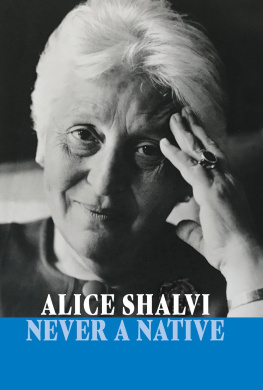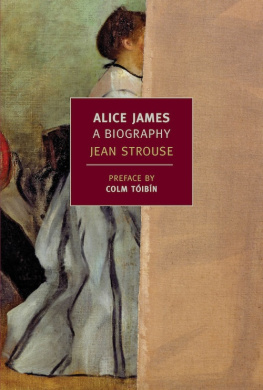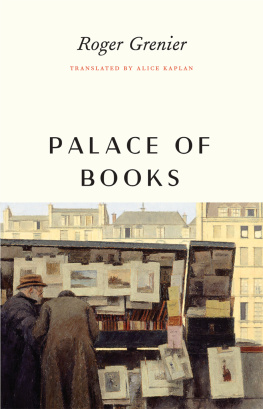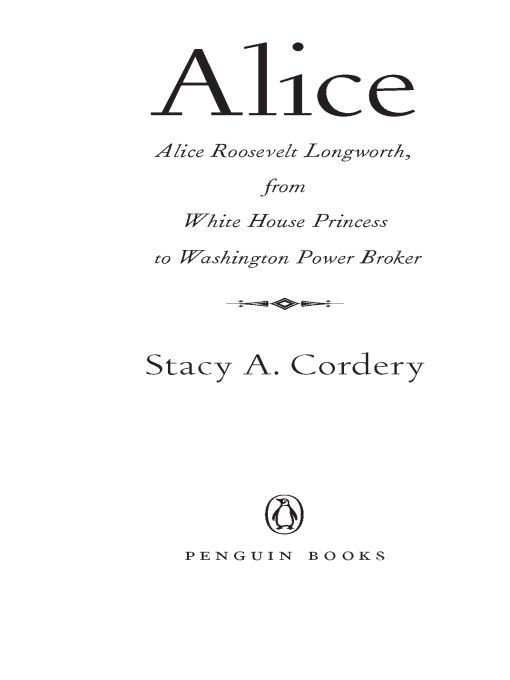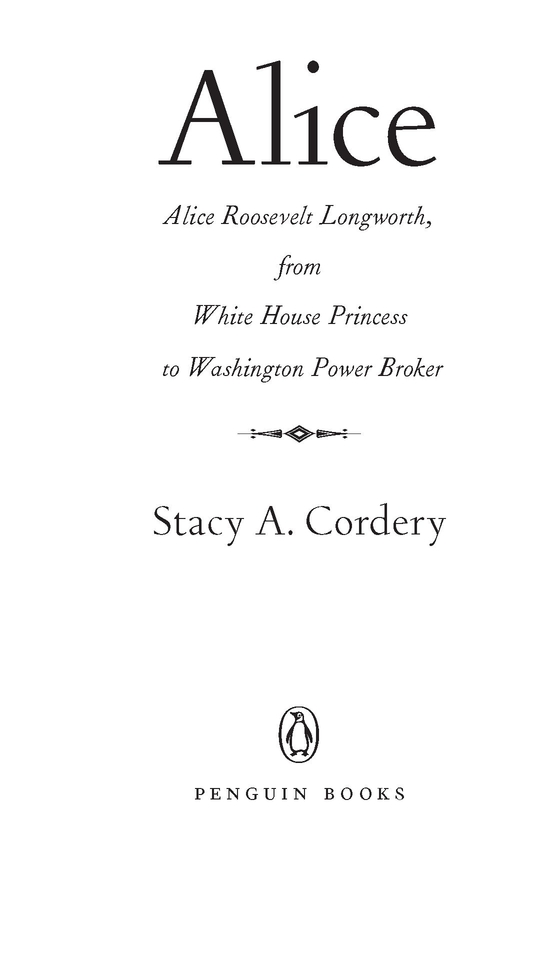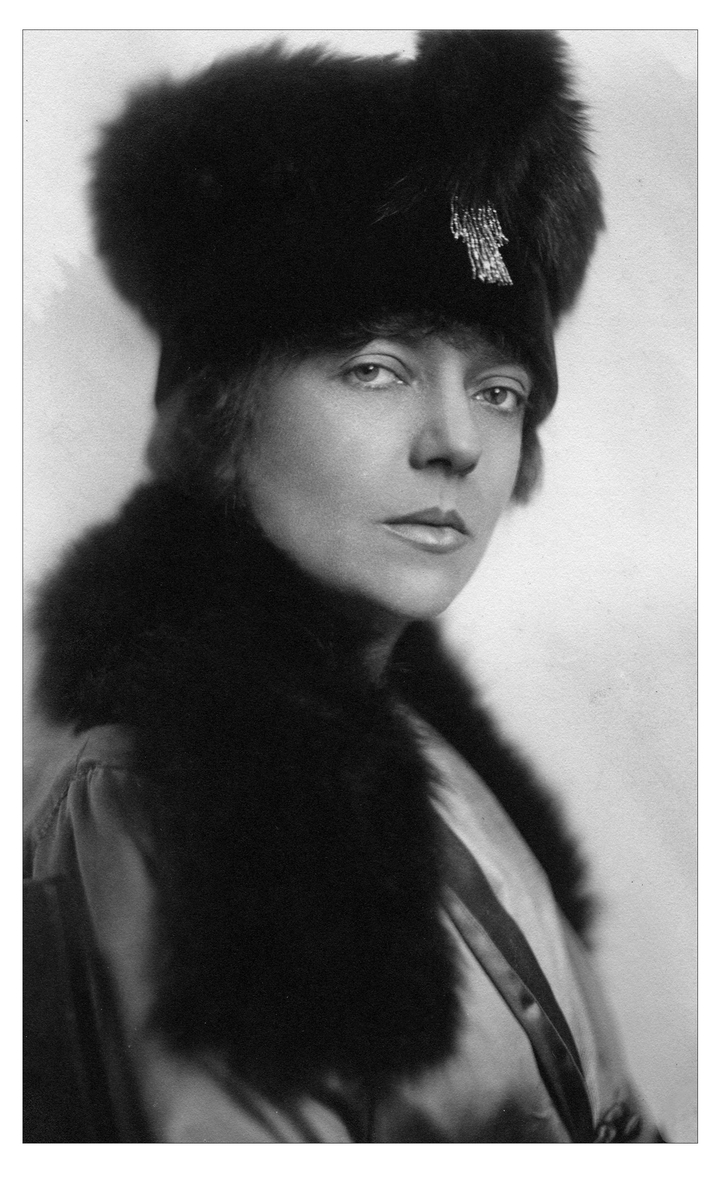Table of Contents
Praise for Alice by Stacy Cordery
One of the most entertaining and educational books of the past year, Alice is proof that scholarly biographies need not be dulland that popular biographies need not be frivolous. Its a book its subject may well have relished, and one its readers will finish with regret.Richmond Times-Dispatch
The best aspect of Alice is the portrait it presents of a long-vanished Washington where politicians from both parties would work out solutions at social events brilliantly orchestrated by the social lioness. Until her death at ninety-six in 1980, she reigned as the other Washington monument.... For interested readers, it offers a wealth of insight into the politics and culture of twentieth-century America.USA Today
To grasp the longevity of Princess Alice upon the Washington scene, one must imagine either Jenna or Barbara [Bush] showing up for a party at 1600 Pennsylvania Avenue in the year 2071, the way Alice Roosevelt Longworth took her seat in the Rose Garden for Tricia Nixons White House wedding sixtyfive years after her own.... Stacy A. Cordery has had more access to Mrs. Longworths private papers than previous writers, [and] notes... [that she was] the first female celebrity of the twentieth century. The New York Times
It is to Corderys credit that she puts her subject in the context of the times, so that one can understand the publics indulgence and sympathize with a woman who felt abandoned most of her life.... She writes with flair worthy of her subject. Alice was not simply a witness to great events. She was a player, igniting fires and stirring the political pot.The Providence Journal
With graceful prose, commanding diction and psychological acuity, author Stacy Cordery... follows the fortunes of Alice Roosevelt Longworth in this absorbing and rigorously researched biography.... Cordery lends valuable but cautious psychological insights to all the climactic events in Alices lifedisappointments, weddings and the deaths of family members and friends. Most important, she takes a woman most remembered for her one-liners and, for the record, details her considerable contributions to U.S. politics and discourse.
Star Tribune (Minneapolis)
Utilizing Alices personal papers, Cordery [shows how]... Alices independence of mind often led her against the grain: she worked to defeat Wilsons League of Nations and was a World War II isolationist and America First activist. Her witty syndicated newspaper columns criticized FDR and the New Deal, and she betrayed her cousin Eleanor by encouraging FDRs liaison with Lucy Mercer Rutherford. Cordery (Theodore Roosevelt: In the Vanguard of the Modern) pens an authoritative, intriguing portrait of a first daughter who broke the mold.
Publishers Weekly
ABOUT THE AUTHOR
Stacy A. Cordery is a professor of history at Monmouth College. She is the author of two books on Theodore Roosevelt and is the bibliographer for the National First Ladies Library. She lives in Monmouth, Illinois, with her husband and son.
To
Lewis L. Gould, mentor above all
and
Simon Cordery, partner in all
Preface
FOR NEARLY ALL of her ninety-six years Alice Roosevelt Longworth occupied a unique place in the nations culture. Part Old Guard, part New Woman, Theodore Roosevelts eldest daughter embraced her celebrity status and understood the constraints of fame but still did precisely what she wanted. At the turn of the twentieth century she became Americas Princess Alice, the intrepid First Daughter who flouted social rules and thereby invited other women to challenge convention. She married Representative Nicholas Longworth in the White House as the nations bride, showered with fairy tale presents from governments and citizens around the globe. Torn between her Republican husband and her Progressive father in the 1912 election, she personified the agony of the divided GOP. Meetings in her drawing room helped to change the course of history, as she fought successfully to keep the United States from joining the League of Nations in the early 1920s. Her syndicated newspaper columns criticizing the New Deal programs of her cousins Franklin and Eleanor Roosevelt found a receptive audience and cemented her reputation as a wit. When war erupted again in Europe, Alice Longworth became a founding member of America First to keep the United States neutral in that overseas conflagration. In her sixties during the early cold war years, she campaigned for Robert Taft, boosted Richard Nixon, and became a passionate anti-Communist. Through the Kennedy and Johnson years, she was an institution in the nations capital and her salon continued to bring together the powerful and the amusing. She embraced her most comfortable role: the other Washington monument.
This book is the first full biography of Alice Roosevelt Longworth based on her personal papers. Access to these untapped sources, not previously available to other biographers and scholars, has opened the way to a more nuanced view than formerly possible of the career of this remarkable American woman. Her tart witticisms were important and influential, but Alice Longworths sway over governmental policy makers and Washington society was due to her incisive intelligence, eclectic interests, and personal magnetism. Alices emotional connections with family members and friends, among them leading politicians and journalists, are also revealed in her letters and diaries.
Alice Roosevelt Longworth was the social doyenne in a town where socializing was state business. She had a habit of taking up promising public servants. Her approval meant instant access to insiders Washington. Every president and countless foreign dignitaries requested audiences with her. Politicians, writers, scientists, journalists, and social climbers coveted invitations to her teas. It was worse to be ignored by Mrs. L than to be skewered by her, and her rapier-sharp dismissals were reserved for the pompous and the obsequious. She could help dispatch an ineffectual politician to an early professional deathwho remembers Thomas Dewey today as anything but the groom on the wedding cake? The hundreds of gatherings she hosted played their part in the smooth workings of the American government. Alice collected Republicans and Democrats, hawks and doves, people with and people lacking societys approbation. Talk flowed freely around her, connections were made, deals struck. For five decades, the Longworth home was ground zero for serious socializing among politicians and those who sought to influence them; her salon bridged the two worlds of Washingtonsociety and politics. Alice Longworth ignored the Junior League and womens clubs. She had no need of them: leaders of the free world came to her dinner table.
They came because she was a politician; never elected, always involved. The Oxford English Dictionary defines politician as one versed in the theory or science of government and the art of governing. Alice Longworth read political philosophy and avidly followed the course of legislation and foreign affairs. Her patriotism and her partisanship burned like twin flames at the center of her philosophy. She cared deeply about the preservation of the United States and never took its continuation for granted. She grew up knowing Civil War veterans, lived through two epic world wars, and faced the cold war with trepidation and resolve. Alice Longworth expected to be disappointed by elected officials, but she never lost her love for the political game.







